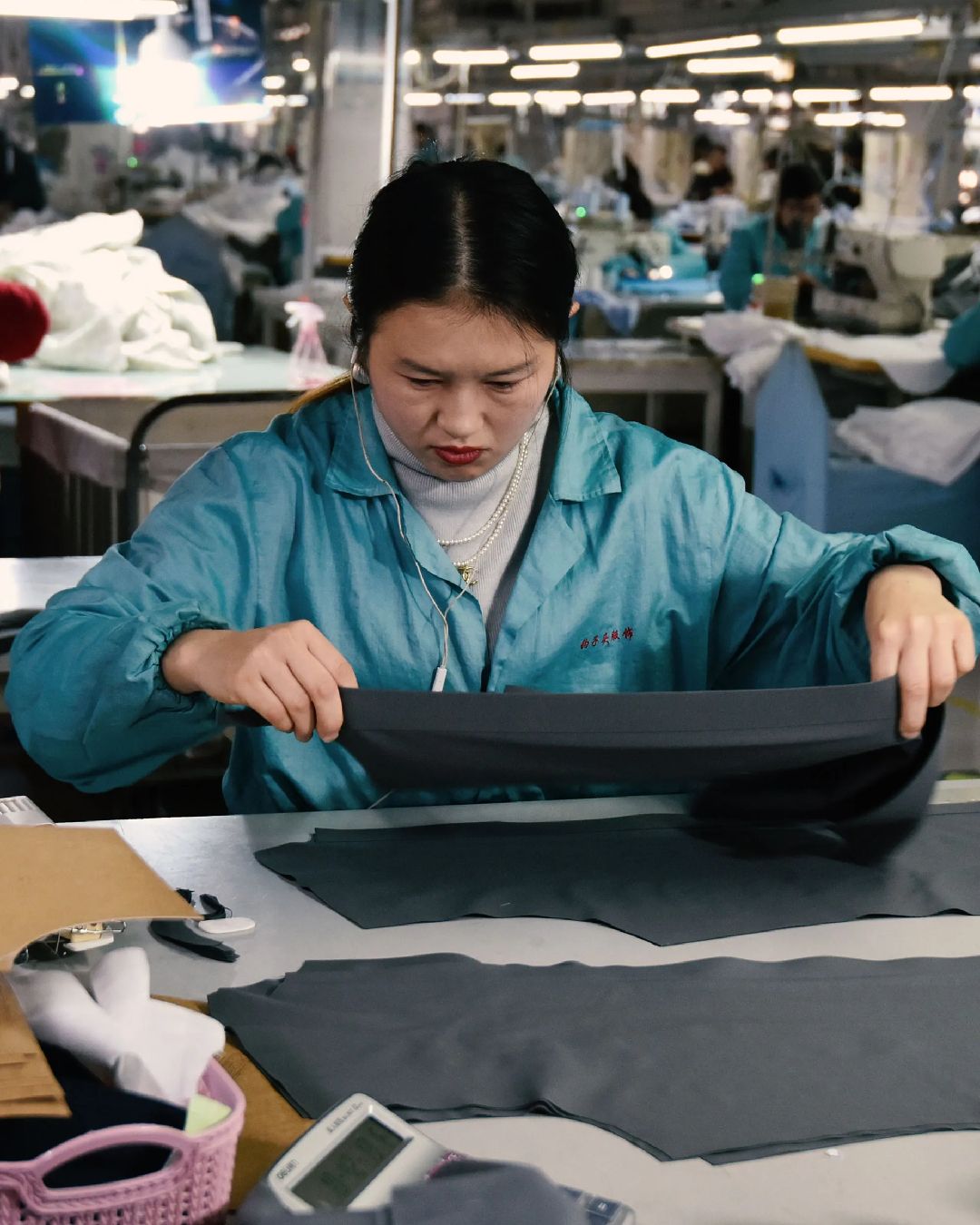
France has an unofficial Minister for Fashion Brune Poirson's mission is taking the french fashion industry on sustainable path
Last August, during the G7 in Biarritz, thirty-two luxury brands, including adidas and Prada, signed the Fashion Pact, a document where they commit to make a collective effort on environmental, climate, ocean defense and biodiversity issues. In addition to Emmanuel Macron and François-Henri Pinault, one of the main supporters of the project was Brune Poirson, French Deputy Minister of Ecological and Inclusive Transition.
In the French Government, she is a leader against waste and in support of waste recycling. Born in Washington DC in 1982, Brune grew up in Apt, Vaucluse. Her father was a sustainable development consultant at the World Bank and her mother restored paintings. After studying at Sciences-Po Aix in Paris and the Harvard School of Economics, she ran for the 2017 legislative elections in the canton led by Marion Maréchal-Le Pen, winning by a narrow margin over the National Front candidate. Shortly after her entry into parliament, she was elected Secretary of State to the Minister for the Ecological and Inclusive Transition. This was not her first function in a state apparatus. In 2009, in fact, she joined the cabinet of Indian Minister Sam Pitroda and worked in his office in New Delhi (India). It was in this country that, between 2012 and mid-2014, she was employed for Veolia as director of sustainable development for South Asia and began to take a more concrete interest in environmental issues. Although her role is not strictly focused on fashion, in the three years since her election, the politician has drafted a zero-waste law that, among many other measures, makes it mandatory to use washing machine filters that prevent microplastics from escaping from clothes and ending up in the water flow, but, above all, has imposed legislation that outlaws the practice of burning or otherwise destroying unsold products ( do you remember Burberry in 2018 when it declared to have burned surplus items for over 32 million euros?). Her militancy in fashion and environment has caused a lot of negative criticism, as she said in an interview:
When you’re a young woman in government — or in general, in life — and you decide to tackle a topic like fashion, everybody goes after you. It’s almost the end of your reputation. If I were really a politician, I would have taken nuclear energy or something. But I think there is more to do in the field of fashion. I know we need to do something about it.
Poirson's commitment to regulate the environmental impact of the sector (which in France alone is the second most profitable in the nation after aeronautics) gave her the nickname of "France's unofficial fashion minister". The New York Times' description has made many wonder about the need to have a person who plays that role and acts within the government.
Let's see some data. According to the Ellen MacArthur Foundation, textile production consumes 98 million tons of non-renewable resources and 93 billion cubic meters of water per year; while the International Energy Agency estimates that industry generated 1.2 billion tons of greenhouse gas emissions in 2016. These numbers are set to increase since, between 2000 and 2015 alone, Euromonitor reveals that garments produced worldwide have risen from 50 billion to 100 billion. Considering these statistics, it seems more and more urgent to have a minister who deals with fashion, not only economically or culturally, but also in environmental terms. An article by Fast Company hypothesizes what would be the steps that a fashion minister would have to take to radically change the industry. Despite the fact that there are many new business models, such as clothing rental, online second-hand markets (we talked about sustainability and circular fashion with Sophie Hersan of Vestiaire Collective and Professor Francesca Romana Rinaldi) and environmentally friendly products, such as Eileen Fisher and Patagonia, the only major change is that all governments regulate the fashion sector, just as they regulate oil or agriculture.
When we think of the most polluting industries in the world, we usually focus on obvious villains such as oil or gas. In recent years, however, we have had a major new player come into play: the fashion industry, currently considered by many sources as the second largest polluter on the planet. Till recently, its impact on the environment has not been well understood, partly because governments did not support research on this issue. Now, it is clear that the problem can no longer be ignored, but new, up-to-date, serious research is required to convince the leadership apparatus that it actually has to act. We need reliable data to understand the phenomenon, to adopt the most effective policies and to establish laws on how fashion companies should manage their business. There are many strategies that can be adopted. For example, one could take inspiration from what Poirson has already done in France by forcing brands to use recycled plastic for packaging and banning virgin plastic. To ensure that these measures are respected, the government needs to tax companies that do not follow the standards. A smart choice would be to redirect the money raised in this way to finance the creation of disposal technologies and facilities that encourage the recycling of clothing and footwear.
Taking all these aspects in mind, and that fashion, a $1.4 trillion sector, is responsible for about 8% of global greenhouse gas emissions, the introduction of a fashion minister is more than hopeful. However, he or she must be competent, informed, forward-looking and have the charisma and power to make real change.






















































